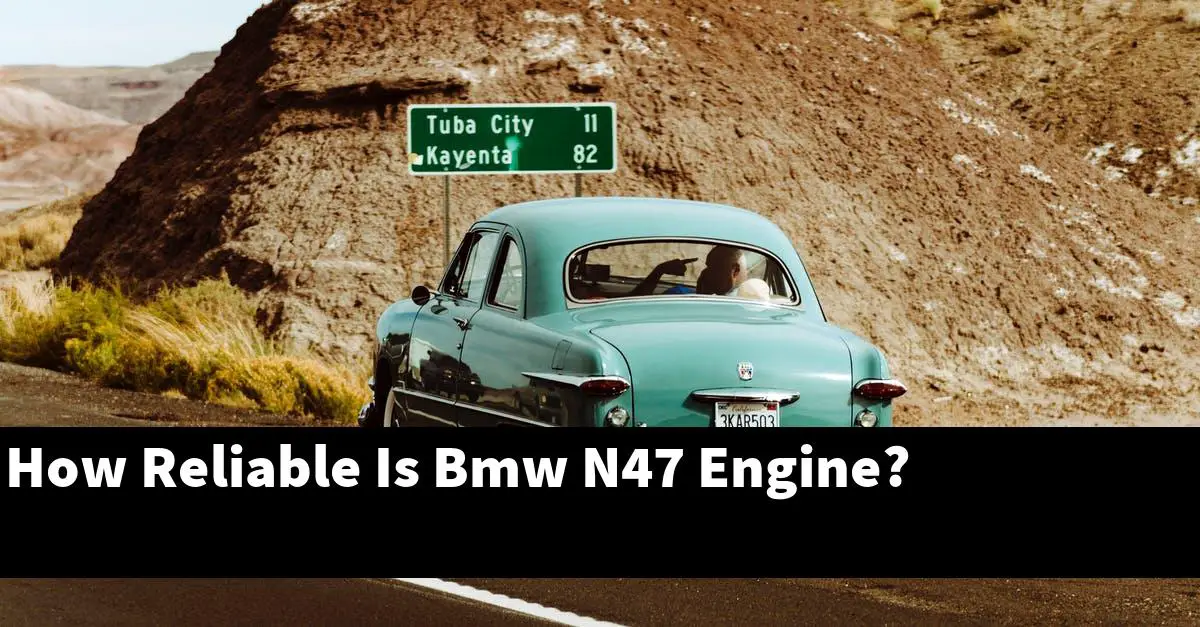The BMW N47 engine is a four-cylinder diesel engine which was produced by BMW from 2007 to 2015. The N47 replaced the BMW M47 engine and was produced at the BMW Hams Hall Engine Plant in the UK. The N47 was available in both straight-four and twin-turbocharged versions and was used in a variety of BMW models.
The N47 engine was BMW’s first diesel engine to use turbocharging and common rail fuel injection. The engine was available in both naturally aspirated and twin-turbocharged versions.
The twin-turbocharged version of the N47 was available in the BMW 535d and BMW 730d models.
The N47 engine was replaced by the BMW B57 engine in 2015.
Why the BMW n47 engine is the most unreliable BMW engine?
The n47 engine is the most unreliable BMW engine. This is because it is a very old engine design and it has been around for many years.
BMW has made many improvements to the n47 engine over the years, but it is still a very unreliable engine. This is because it is not built to withstand a lot of stress and it is not built to last.
When did the n47 engine come out in the 1 series?
The n47 engine first came out in the BMW 1 series in 2006. It was a new engine design that was more fuel efficient and emissions-free.
How long do n47 engines last?
N47 engines have a lifespan of around 300 hours. This is based on a number of factors, including the type of fuel used, the quality of maintenance performed, and the overall condition of the engine.
When did BMW fix the n47 engine?
BMW fixed the N47 engine in November of 2009.
Are all n47 engines the same?
There is no one “true” answer to this question as each engine is tailored to a specific application. However, in general, all n47 engines share a number of common features, including:
-A high-efficiency, high-torque design
-A strong build quality
-A variety of accessory options and mounting options
As a result, n47 engines are a popular choice for a wide range of applications, including heavy trucks, construction vehicles, and agricultural equipment.
Which BMW engine has timing chain problems?
BMW engines have timing chain problems if the chain tensioner or chain guide fails. The chain tensioner helps to keep the timing chain tensioned, and the chain guide helps to keep the chain in line.
If either of these components fail, the chain can become slack, which can cause the engine to misfire.
Do all n47 engines fail?
The answer to this question is not simple and there is no single answer that is universally true. There are many factors that can contribute to an engine failure, including the type of engine, the age of the engine, and the quality of the engine.
There is no single answer to the question of whether all n47 engines will eventually fail. Each engine is different and will have a different lifespan.
Some engines may have a shorter lifespan than others, and some may have a longer lifespan.
There are a few key factors that can contribute to an engine’s lifespan. The type of engine, for example, can affect how long the engine will last.
Older, less efficient engines may have a shorter lifespan than newer, more efficient engines. The age of the engine can also have a significant impact on how long the engine will last.
An engine that is newer and has been well-maintained may have a longer lifespan than an older engine that has been neglected. The quality of the engine can also play a role in how long the engine will last.
If the engine is constructed using high-quality materials, it may have a longer lifespan than an engine that is made using lower quality materials.
Ultimately, it is impossible to predict the lifespan of an engine without testing it. Each engine is unique and will have a different lifespan.
Some engines may last for many years, while others may only last for a few years. It is important to be aware of the key factors that can impact an engine’s lifespan and to keep it well-maintained in order to ensure that it lasts as long as possible.
What percentage of n47 engines fail?
N47 engines are used in certain models of Toyota and Lexus vehicles. The engines have a history of experiencing failures, typically in the form of engine fires.
The failure rate of n47 engines is unknown, but it is likely high.
What are some common problems with the n47 engine family?
There are a few common problems with the n47 engine family:
1. Poor fuel economy – The n47 engine is designed for high-performance applications and is not as efficient as other engines in its class.
2. High emissions – The n47 engine is not compliant with some emissions regulations, which can result in higher emissions levels.
3. Poor reliability – The n47 engine is known to be prone to reliability issues.
Does a BMW n47 have a timing belt or chain?
The BMW N47 engine has a timing belt or chain.
Conclusion
The BMW N47 engine is considered to be a reliable engine. However, there have been some reports of issues with the timing chain tensioner, which can lead to engine failure.


